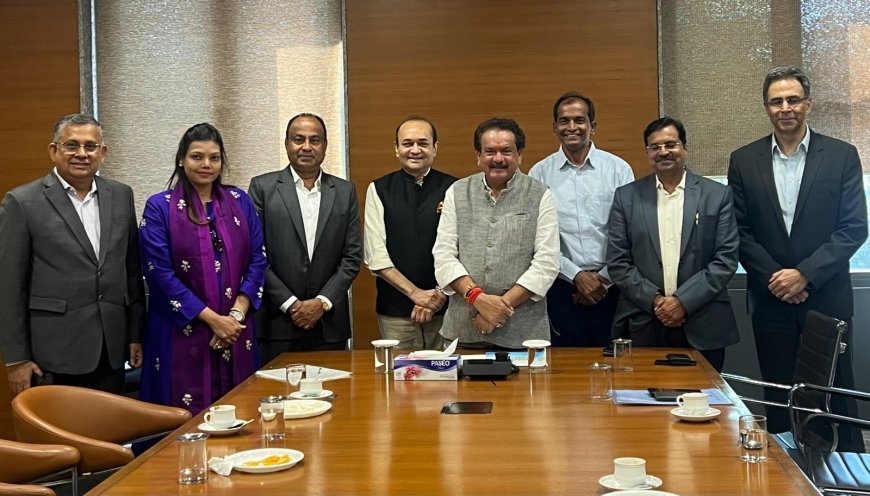India Establishes Veterinary Vaccine Manufacturers Association to Enhance Animal Health Sector
The Veterinary Vaccine Manufacturers Association aims to boost India's animal health sector through collaboration and innovation in vaccine production.

The primary objective of VVIMA is to create a conducive ecosystem that fosters innovation, ensures high-quality manufacturing, and enhances global competitiveness in the veterinary vaccine arena. The organization seeks to position India as a global hub for research, development, and manufacturing of animal vaccines, aligning with the broader vision of improving animal health and welfare.
The concept of “One Health,” which emphasizes the interconnectedness of human, animal, and environmental health, is central to VVIMA's mission. By implementing effective immunization strategies, the association aims to reduce the risk of diseases in animals, mitigate the transmission of zoonotic diseases between animals and humans, and ultimately improve the livelihoods of those engaged in animal husbandry, particularly in rural areas.
On September 25, a foundational meeting was held in Delhi, attended by VVIMA's founding members and officials from the Department of Animal Husbandry and Dairying. Key figures included Minister of State Prof. S.P. Singh Baghel, Secretary Naresh Pal Gangwar, Commissioner Dr. Praveen Malik, and Additional Secretary Ms. Varsha Joshi, all of whom expressed their commitment to supporting VVIMA's initiatives.
In line with Prime Minister Narendra Modi's vision of an "Atmanirbhar Bharat" (self-reliant India), VVIMA plans to collaborate closely with the government to achieve self-sufficiency in veterinary vaccines through research and development, technology acquisition, innovation, and a robust supply chain. The overarching goal is to establish India as a global supplier of veterinary vaccines, especially given that the domestic veterinary vaccine market is estimated to be worth approximately ₹20 billion (around $2 billion), while the global veterinary vaccine market exceeds ₹1 trillion (over $100 billion).
India currently boasts eight private sector veterinary vaccine manufacturers alongside several government-operated manufacturing units. The vaccines produced cater to a wide range of animal species, including poultry, cattle, sheep, goats, pigs, and pets. Under various national and state vaccination programs, the government procures and distributes vaccines for diseases such as Foot and Mouth Disease (FMD), Brucellosis, Pest des Petits Ruminants (PPR), Goat Pox, and Classical Swine Fever—all of which are primarily produced domestically by private sector entities.
Rajeev Gandhi, CEO and Managing Director of Hester Biosciences Limited, and the first President of VVIMA, expressed pride in leading this initiative. He emphasized that VVIMA would actively engage with policymakers, regulators, and stakeholders to foster an environment that promotes innovation, ensures quality production, and enhances global competitiveness.
Dr. K. Anand Kumar, Managing Director of Indian Immunologics Limited and Vice President of VVIMA, highlighted that the association was established in response to both internal and external factors impacting the veterinary vaccine industry in India. He stated that VVIMA would provide essential policy recommendations to position India as a global leader in animal vaccines.
Furthermore, VVIMA aims to underscore the importance of effective vaccination in animal and poultry health, not only to safeguard animals from diseases but also to protect human health by reducing the risk of zoonotic infections.







